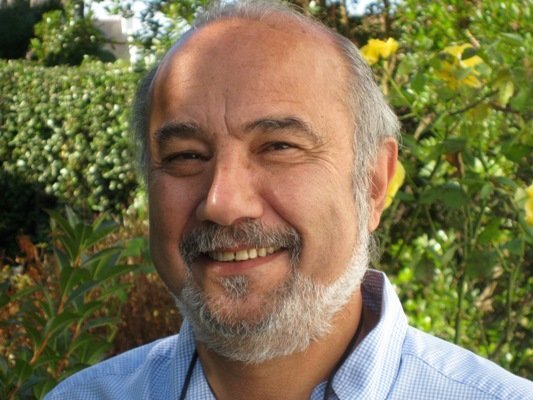Trump wants to destroy Iran’s ability to defend itself against aggressors: Professor

TEHRAN – A senior expert in Arab affairs who teaches international business at George Washington University is of the view that Trump in reality “wants to destroy Iran’s ability to defend itself against aggressors from the region and farther afield.”
Hossein Askari tells the Tehran Times that “Iran found itself isolated and defenseless after it was invaded by Saddam Hussein”.
He also adds that “The United Nations and international law did not come to Iran’s rescue! Iran cannot let itself be defenseless again.”
Following is the text of the interview:
Q: U.S. President Donald Trump will today approve the Iran nuclear deal only one more time before abandoning it if it is not changed. What are the changes that Trump wants?
A: He says he wants to ban Iran’s uranium enrichment program when it is set to expire in 2025 and to curtail its ballistic missile program. But in reality he wants to destroy Iran’s ability to defend itself against aggressors from the region and farther afield. So he will continue to accuse Iran of wrongdoings until he has an Iran that is defenseless. Iran has no choice but to stand firm against his bullying.
Q: The White House wants a deal with EU signatories to make restrictions on Iran's uranium enrichment permanent. Under the current deal they are set to expire in 2025. Do you think EU will accept this condition? If so, will Iran accept it?
A: Let me first address the second part of your question. I do not believe Iran will accept any new conditions. The reasons are many. To begin with, the nuclear powers have not kept their end of the bargain under the NPT (Treaty on the Non-Proliferation of Nuclear Weapons). They were supposed to support peaceful activities of all signatories. Well they pick and choose and they have decided that Iran cannot be trusted. They agreed to eliminate their own nuclear arsenals over time and yet the U.S. has developed a ‘new class’ of such weapons that can be more readily used!
They were supposed to refrain from assisting non-signatories to the NPT, yet the U.S. has rewarded at least one non-signatory, namely India. More practically, look at Libya and North Korea. When Libya gave up its program, it was invaded and a nuclear-armed North Korea gets respect and has not been attacked. I could go on but the most important reason why Iran cannot compromise is that Iran has seen that international law is highly malleable.
Iran found itself isolated and defenseless after it was invaded by Saddam Hussein. The United Nations and international law did not come to Iran’s rescue! Iran cannot let itself be defenseless again. And now a U.S. that reportedly champions international law and order wants to unilaterally change an agreement it signed. Iran cannot and will not accept a permanent prohibition of enrichment in such a lawless world where might makes right.
Turning to Europe, I think that the Europeans will try to pressure Iran behind the scenes, but not publicly, to make some concessions. And if Iran does not accept, something that it should not accept, the Europeans will say that they will continue to honor the agreement. So, the EU will not go along with Trump.
Q: Mr Trump also wants Iran's ballistic missile program to be addressed. Iran frequently has emphasized that ballistic missile is not related to JCPOA and will not negotiate about it. According to this, do you think that this condition meaning the end for JCPOA?
A: Again, I believe that the EU will not insists on this demand of Trump’s. But you should note that Saudi Arabia has bought long-range Chinese missiles that can carry nuclear warheads. So even if the Iranian missile were for this purpose, why can others do what they want while Iran is handcuffed? Because the EU will again not go along with Trump, I don’t think that this is necessarily the end of the JCPOA.
The agreement will end if Iran does not receive the promised sanctions relief, which it has not and may not as long as the U.S. threatens companies and institutions outside the U.S. not to do business with Iran. This is the real threat, which would push Iran to abandon the agreement.
But I can also imagine conditions that would drive Iran to withdraw from the NPT. This is not as unlikely as some may think.
There may be a silver lining for Iran in Trump’s opposition to the JCPOA. There is no way that the agreement could be changed in 120 days even if the parties wanted to. Trump will have to back down or if he does not and the U.S. withdraws, then Iran should insist on concessions from Europe on a number of issues.
First, they would protect their companies that did business with Iran from any and all U.S. retaliation. Second, they would protect Iran’s access to SWIFT and to the international financial system generally. Third, they would reach a special trade agreement with Iran. Please note that all of this would also drive a wedge between the EU and the United States, something that would be welcomed by Russia and China.
Q: What general advice do you have for Iranian leaders in the face of these developments?
A: My most important advice has been, and will continue to be, that Iran must improve its economic performance with equal opportunities for all Iranians. Faster growth with more inclusive benefits for all Iranians is Iran’s urgent need. Iran must deal with the corruption that is destroying its economy. It must develop more effective institutions, including the rule of law, stronger property rights, growth enhancing rules and regulations, comprehensive and equitable system of taxation, and consistent policies. When and if Iran is strong economically, it would be a united nation and other countries would hesitate to threaten it. Iran would then be safer and more secure.
